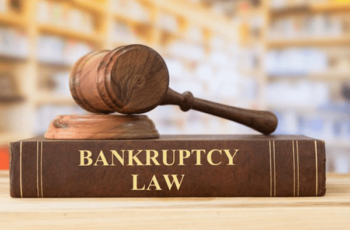International Best Practices for Whistleblowers
Corruption, frauds and illegal activities have become one of the greatest concerns in the 21st century. Though proper laws and legislations are implemented all over the world, the problem still persists in several countries. To detect and prevent such malpractices in organizations, whistleblowing is used as one of the effective means these days. But often such reporting comes with a high price where whistleblowers risk their jobs, careers and sometimes their own lives.
When India woke up one morning in 2003 to the massive headlines of the brutal murder of NHAI engineer, Satyendra Dubey who fought corruption in the Golden Quadrilateral highway construction project, the nation was at a standstill reconsidering its existing legal structure and the immediate need to save and protect whistleblowers from such victimization. 18 years have passed and India is still a few steps backward in developing a policy for whistleblowers who expose organizations out in the public domain. Whistle blowing is now used as a broad option for an employee to raise any concerns of wrongdoing in his/her workplace. It has become common around the world and the need for strong and wide protection for these whistleblowers has come in as a rising concern today. This article will underpin the present state of practices in whistleblowing policies around the world and the necessary developments India has to take in regard to whistleblowers complaints.
The Whistle-blowers Protection Act (WBPA) of 2011 was enacted to protect victimization of whistleblowers in the country. Later, the act was renamed as The Whistleblowers Protection Act, 2014 and was passed by both Houses of Parliament, but has not been put into effect so far. The Act is limited only to the public sector enterprises and the realm of protection conferred to the private sector is ambiguous.
However, the void created by the WBPA Act was later filled in by the rules of Companies act 2013 & the SEBI. The Companies Act, 2013 is mainly targeted to seek attention of shareholders to frivolous practices of a company. The rules there under the act provides for a mandatory establishment of a “Vigil Mechanism” by all listed entities under the stock exchange to report and scrutinize such complaints. Such mechanisms furnish probable protection against exploitation of people. However there is no clear direction on how it should operate and the protections conferred are solely dependent on the policies implemented by the companies itself.
On the other hand, The Securities Exchange Board of India has also directed all listed companies and public sector firms to formulate a compulsory whistleblower policy. Further, it has also introduced a reward mechanism to encourage such informants for disclosing unlawful and immoral practices of an organization. [1]Chapter IIIA, SEBI (Prohibition Of Insider Trading) Regulations, 2015.The deployment of the Companies Auditor’s Report Order, 2020 is a genuine step towards addressing legal repercussions. It warrants for enhanced due diligence and transparency on the part of auditors to enhance greater transparency in the financial affairs of those companies.
Critical Analysis of India’s Whistle-blower Protection Law with Other Countries.
One of the key protections to confer whistleblowers is from detrimental treatment like dismissal for disclosing wrongdoing in the organization. The term “Protection” has not been broadly defined in the WBPA Act of India .Countries like Austria under its Public Service Legislations and France under Sapin II Act explicitly protect employees from detriment for disclosing unlawful activities on good faith. Belgium’s Act of 2017 confers limited protection to employees from dismissal due to whistleblowing and also rewards additional compensation of 3-7 weeks’ pay. The law should ensure protection from punishment, discrimination from employers for whistle-blowers.
The next most pertinent issue in whistleblowing is maintaining anonymity and confidentiality of the whistleblower’s identity. The companies neither Act nor the WBPA provide for any such instruments to maintain anonymity of whistleblowers. The disclosures are made in writing to the competent authority and anonymous complaints are not taken into account under this Act. Romania’s Whistleblower Protection Act 2004 and the Prevention of Corruption Act of Singapore bestows with anonymity to whistle-blowers. In Manjeet Singh Khera v. State of Maharashtra (2013) 9 SCC 276, the court highlighted the importance of anonymity of whistleblowers and held it as one of the key priorities in the forthcoming years.
In India, the competent authority tends to change with the individual or entity against which the complaint is filed by the informant. Hence, there is not just one agency in India that considers all whistleblower complaints. Office of Public Sector Integrity Commissioner in Canada, Merit System Protection & Office of Special Counsel in the US and Office of the Civil Service Commissioners in the UK are separate authorities set up to manage affairs related to whistleblowing.
Except for those rules set out under the SEBI, there is no such explicit provision that the WBPA Act mandates informants with monetary incentives for uncovering the illegal activities into the limelight. The United States not only has a system where individuals are protected from detrimental treatment, it also seeks to encourage disclosure where whistle-blowers can file a lawsuit through the False Claims Act against any default by companies and can get a mere 15-30% incentive from the fine amount. In fact, China’s Regulation of labour security provision & criminal procedure rewards whistle-blowers with monetary rewards in significant cases.
It is the need of the hour to focus on importance of disclosures and reinforcement of anti-retaliation policies under the Indian legal system. The degree of protection conferred to employees in Ireland is advanced wherein employees are protected from retaliation for disclosing sensitive illegal information. Italy in its Legislative Decree no. 231/2001 protects both public and private employees from retaliation due to disclosures. As of today there is no proper legislation in India that cover both public and private employees from retaliation.
Overall, it could be adjudged that despite varying pictures of global policies, India has several lacunae in its whistle-blowing legislation. Needless to say it will take a very long time to promote whistle-blower friendly laws, it is important that companies should be aware of critical nuances while framing robust policies. The need of the hour is to make informants and employees feel safe by strengthening whistle-blowers retaliation process. The fact that there is no legal consistency in laws around the globe could be the best evidence on how far this issue has moved all the way up in employment objectives all these years.
References
| ↑1 | Chapter IIIA, SEBI (Prohibition Of Insider Trading) Regulations, 2015. |
|---|









 He holds a Bachelor’s and Master’s Degree in Corporate Secretaryship and a Degree in Law. He is a Fellow member of the Institute of Company Secretaries of India and an Associate Member of the Corporate Governance Institute, UK and Ireland. He has also completed a program from ISB on ‘Value Creation through Mergers and Acquisitions.
He holds a Bachelor’s and Master’s Degree in Corporate Secretaryship and a Degree in Law. He is a Fellow member of the Institute of Company Secretaries of India and an Associate Member of the Corporate Governance Institute, UK and Ireland. He has also completed a program from ISB on ‘Value Creation through Mergers and Acquisitions. Mr P Muthusamy is an Indian Revenue Service (IRS) officer with an outstanding career of 30+ years of experience and expertise in all niche areas of Indirect Taxes covering a wide spectrum including GST, Customs, GATT Valuation, Central Excise and Foreign Trade.
Mr P Muthusamy is an Indian Revenue Service (IRS) officer with an outstanding career of 30+ years of experience and expertise in all niche areas of Indirect Taxes covering a wide spectrum including GST, Customs, GATT Valuation, Central Excise and Foreign Trade. During his judicial role, he heard and decided a large number of cases, including some of the most sensitive, complicated, and high-stake matters on insolvency and bankruptcy, including many cases on resolution plans, shareholder disputes and Schemes of Amalgamation, De-mergers, restructuring etc.,
During his judicial role, he heard and decided a large number of cases, including some of the most sensitive, complicated, and high-stake matters on insolvency and bankruptcy, including many cases on resolution plans, shareholder disputes and Schemes of Amalgamation, De-mergers, restructuring etc., Ms. Sarah Abraham has been enrolled with the Bar Council of Tamil Nadu since 1998. Her areas of practice include Shareholder Disputes, Corporate Compliances, Mergers and Acquisitions, Private Equity/ Venture Capital Agreements and allied disputes, Information Technology Contracts, Intellectual Property, General Commercial Agreements, Litigation, Arbitration and Mediation.
Ms. Sarah Abraham has been enrolled with the Bar Council of Tamil Nadu since 1998. Her areas of practice include Shareholder Disputes, Corporate Compliances, Mergers and Acquisitions, Private Equity/ Venture Capital Agreements and allied disputes, Information Technology Contracts, Intellectual Property, General Commercial Agreements, Litigation, Arbitration and Mediation. A K Mylsamy is the Founder, Managing Partner and the anchor of the firm. He holds a Degree in law and a Degree in Literature. He is enrolled with the Bar Council of Tamil Nadu.
A K Mylsamy is the Founder, Managing Partner and the anchor of the firm. He holds a Degree in law and a Degree in Literature. He is enrolled with the Bar Council of Tamil Nadu. M Subathra holds a Degree in law and a Master’s Degree in International Business Law from the University of Manchester, United Kingdom. She is enrolled with the Bar Council of Tamil Nadu.
M Subathra holds a Degree in law and a Master’s Degree in International Business Law from the University of Manchester, United Kingdom. She is enrolled with the Bar Council of Tamil Nadu. Mr. K Rajendran is a former Indian Revenue Service (IRS) officer with a distinguished service of 35 years in the Indirect Taxation Department with rich experience and expertise in the fields of Customs, Central Excise, Service Tax and GST. He possesses Master’s Degree in English literature. Prior to joining the Department, he served for the All India Radio, Coimbatore for a period of about 4 years.
Mr. K Rajendran is a former Indian Revenue Service (IRS) officer with a distinguished service of 35 years in the Indirect Taxation Department with rich experience and expertise in the fields of Customs, Central Excise, Service Tax and GST. He possesses Master’s Degree in English literature. Prior to joining the Department, he served for the All India Radio, Coimbatore for a period of about 4 years. An MBA from the Indian Institute of Management, Calcutta, and an M.Sc. in Tourism Management from the Scottish Hotel School, UK, Ashok Anantram was one fo the earliest IIM graduates to enter the Indian hospitality industry. He joined India Tourism Development Corporation (ITDC) in 1970 and after a brief stint proceeded to the UK on a scholarship. On his return to India, he joined ITC Hotels Limited in 1975. Over the 30 years in this Organisation, he held senior leadership positions in Sales & Marketing and was its Vice President – Sales & Marketing. He was closely involved in decision making at the corporate level and saw the chain grow from a single hotel in 1975 to a very large multi-brand professional hospitality group.
An MBA from the Indian Institute of Management, Calcutta, and an M.Sc. in Tourism Management from the Scottish Hotel School, UK, Ashok Anantram was one fo the earliest IIM graduates to enter the Indian hospitality industry. He joined India Tourism Development Corporation (ITDC) in 1970 and after a brief stint proceeded to the UK on a scholarship. On his return to India, he joined ITC Hotels Limited in 1975. Over the 30 years in this Organisation, he held senior leadership positions in Sales & Marketing and was its Vice President – Sales & Marketing. He was closely involved in decision making at the corporate level and saw the chain grow from a single hotel in 1975 to a very large multi-brand professional hospitality group. Mani holds a Bachelor Degree in Science and P.G. Diploma in Journalism and Public Relations. He has a rich and varied experience of over 4 decades in Banking, Finance, Hospitality and freelance Journalism. He began his career with Andhra Bank and had the benefit of several training programs in Banking.
Mani holds a Bachelor Degree in Science and P.G. Diploma in Journalism and Public Relations. He has a rich and varied experience of over 4 decades in Banking, Finance, Hospitality and freelance Journalism. He began his career with Andhra Bank and had the benefit of several training programs in Banking. Mr. Kailash Chandra Kala joined the Department of Revenue, Ministry of Finance as ‘Customs Appraiser’ at Mumbai in the year 1993.
Mr. Kailash Chandra Kala joined the Department of Revenue, Ministry of Finance as ‘Customs Appraiser’ at Mumbai in the year 1993.
 S Ramanujam, is a Chartered Accountant with over 40 years of experience and specialization in areas of Corporate Tax, Mergers or Demergers, Restructuring and Acquisitions. He worked as the Executive Vice-President, Group Taxation of the UB Group, Bangalore.
S Ramanujam, is a Chartered Accountant with over 40 years of experience and specialization in areas of Corporate Tax, Mergers or Demergers, Restructuring and Acquisitions. He worked as the Executive Vice-President, Group Taxation of the UB Group, Bangalore. K K Balu holds a degree in B.A and B.L and is a Corporate Lawyer having over 50 years of Legal, Teaching and Judicial experience.
K K Balu holds a degree in B.A and B.L and is a Corporate Lawyer having over 50 years of Legal, Teaching and Judicial experience. Justice M. Jaichandren hails from an illustrious family of lawyers, academics and politicians. Justice Jaichandren majored in criminology and then qualified as a lawyer by securing a gold medal. He successfully practiced in the Madras High Court and appeared in several civil, criminal, consumer, labour, administrative and debt recovery tribunals. He held office as an Advocate for the Government (Writs Side) in Chennai and was on the panel of several government organizations as senior counsel. His true passion lay in practicing Constitutional laws with focus on writs in the Madras High Court. He was appointed Judge, High Court of Madras in December 2005 and retired in February 2017.
Justice M. Jaichandren hails from an illustrious family of lawyers, academics and politicians. Justice Jaichandren majored in criminology and then qualified as a lawyer by securing a gold medal. He successfully practiced in the Madras High Court and appeared in several civil, criminal, consumer, labour, administrative and debt recovery tribunals. He held office as an Advocate for the Government (Writs Side) in Chennai and was on the panel of several government organizations as senior counsel. His true passion lay in practicing Constitutional laws with focus on writs in the Madras High Court. He was appointed Judge, High Court of Madras in December 2005 and retired in February 2017. S Balasubramanian is a Commerce and Law Graduate. He is a member of the Delhi Bar Council, an associate Member of the Institute of Chartered Accountants of India, the Institute of Company Secretaries of India and Management Accountants of India.
S Balasubramanian is a Commerce and Law Graduate. He is a member of the Delhi Bar Council, an associate Member of the Institute of Chartered Accountants of India, the Institute of Company Secretaries of India and Management Accountants of India.